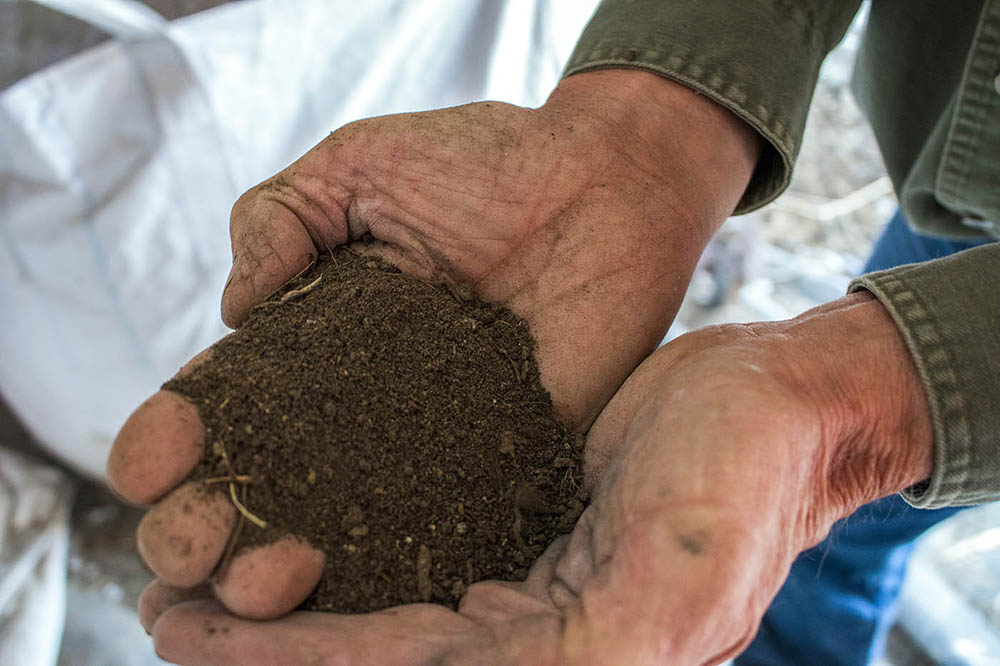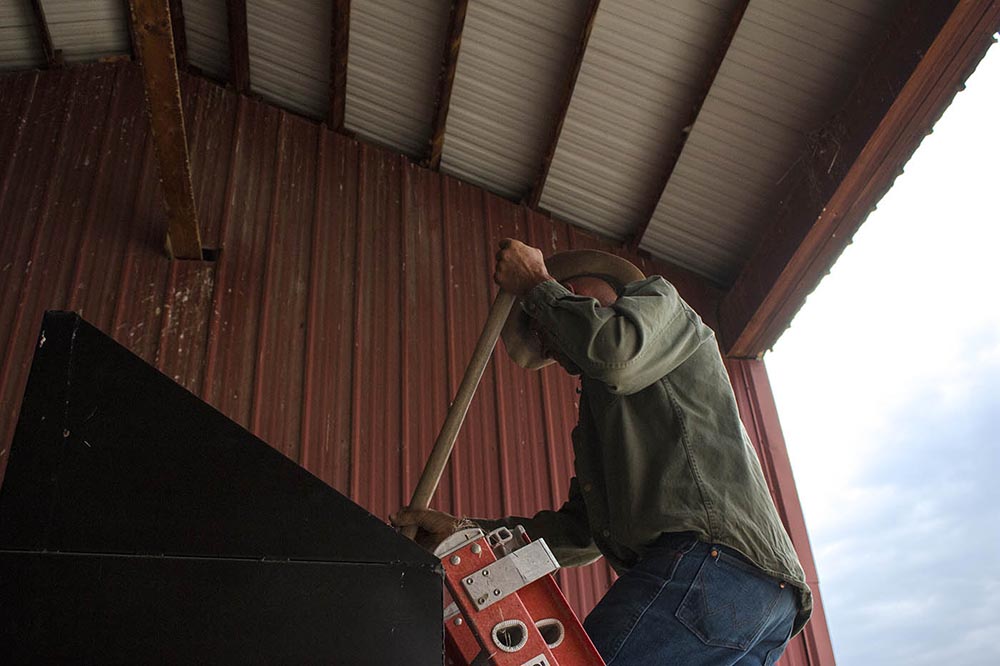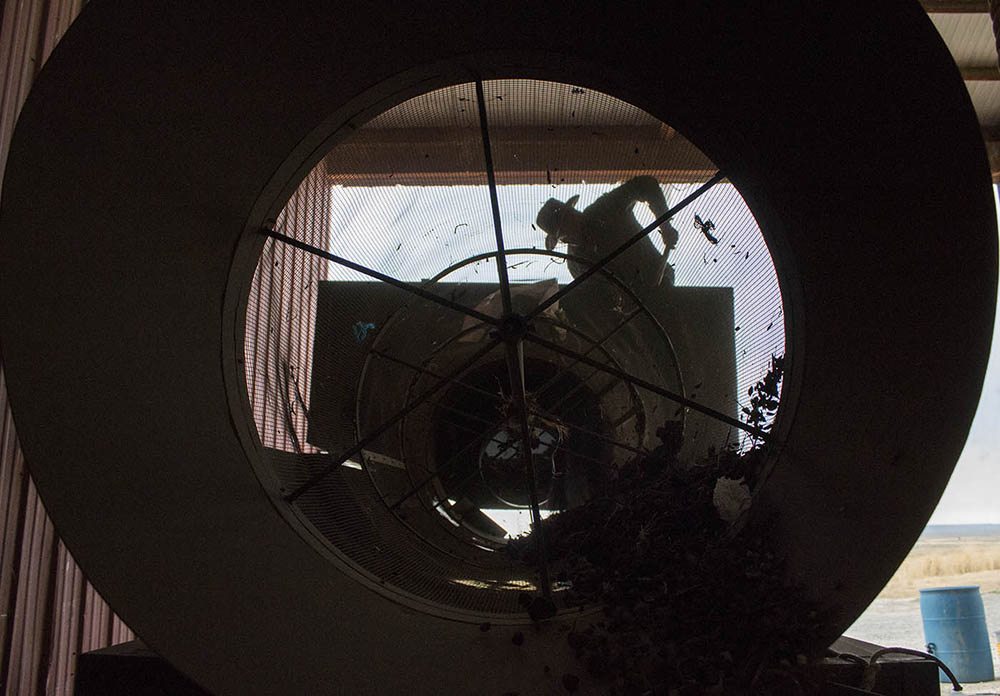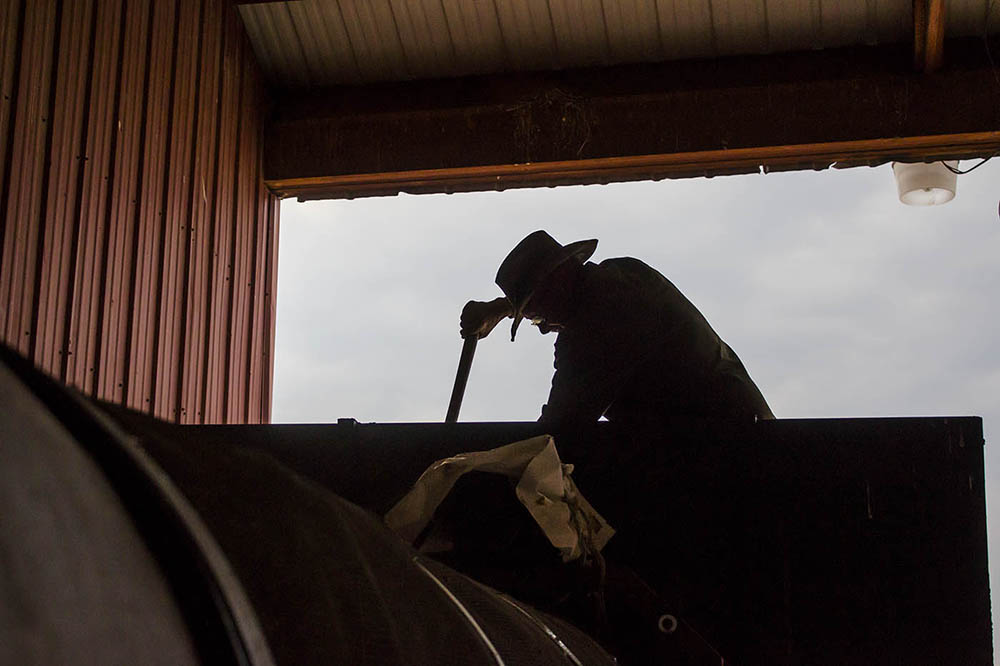Steve Charter:
Soil Health
Third-generation rancher Steve Charter at his home in Shepherd, Montana.
Third-generation rancher Steve Charter is changing the story about agriculture. “When you use fertilizer, herbicide, pesticide, over-till and overgraze, you mess up the entire relationship of the soil and the plant,” said Steve. Over the past 70 years modern agriculture’s reliance on additives has depleted soil, polluted waterways, significantly increased greenhouse gas emissions and stripped nutrients out of food. “As your soil diminishes you need more and more of these inputs. At this point agriculture is getting less and less viable because we have to get more and more inputs and we’re not getting much from the soil. It’s because we didn’t know any better.”
The current system is not only expensive due to extra chemical inputs used for production, it is also not as profitable for the producer and not as nutritious for the consumer.
“Modern agriculture is just a blip. We haven’t been doing this for very long. It looked like it was going to work fine and now it’s showing it’s not going to work.”
Steve feels the newly regenerated soil. Steve feeds his soil microbes and organic matter to keep his soil rich and healthy.
Fortunately, there is a fix for the unforeseen problems caused by modern agriculture. Soil regeneration and putting carbon back into the soil will produce healthier plants, healthier livestock, healthier land and therefore healthier people.
“Healthy soil is just the basics of everything,” said Steve. “One thing is water holding capacity – if your soil is compacted and anaerobic it means it’s not getting air circulation and water circulation. If you can start building up the organic matter and humus in your soil it has more water holding capacity and also more nutrients. Everything starts with healthy soil. If you’re producing healthy cattle and healthy plants, then that nutrients are in it for people. So if we can have healthy soil it can just rise up through the system.”
Steve waters the soil before covering it to trap the moisture into the ground.
Although soil regeneration efforts are relatively new to agricultural circles, the ideas behind the process are innate in nature. “We have this wonderful system that developed over four billion years ago that knows how to grow plants, knows how to get the nutrition right from the soil.”




Steve holds out vermicast fresh from the trummel. This process rids the soil of rocks and other unwanted objects.
Northern Plains Resource Council’s soil committee is dedicated to educating and connecting farmers and ranchers to healthy soil initiatives. Northern Plains sponsored “soil crawls” are opportunities for individuals to learn about soil regeneration and then go out to local ranches and farms and see ongoing soil restoration projects. “I think what we’re doing right here is a good start. It does really help that there are other people working on this and people to talk to...people can start understanding these ideas and then the idea that everybody needs to support it,” said Steve.
Steve’s cattle on his pasture in Roundup, Montana.
Steve is hopeful of the opportunities regenerative agriculture presents. “Agriculture could really be one of the big solutions to a lot of our problems. Even with global climate change, there are ways to take carbon dioxide out of the air and put it back into the soil. If agriculture can do that, agriculture can be a part of the solution. That’s kind of my passion and that’s what we’re trying to do. I think that it could really change the narrative of climate deniers.”
Steve and his family look for worms in the regenerated soil.
“Soil restoration work will directly benefit me because I will have more, healthier plants and because of that I’ll have healthier and fatter cattle, I’ll be more resilient to drought because of the holding capacity. There’s a huge direct benefit to me but then there’s also a huge benefit to society because if you have healthy soil you don’t have runoff. Everything about healthy soil benefits society…whether it’s less flooding or taking carbon dioxide out of the air. And that’s a direct benefit to me too, you know I’ve got grandkids, I want them to live in a really healthy world.”
Steve in front of his solar powered home.
By working together as producers and consumers and shifting the focus of modern agriculture from quantity to quality, we can restore soils, waterways and landscapes, put nutrition back into foods and increase income of local growers. “Change takes a long time and we don’t have a long time. I think we need to step this up as much as possible and get this momentum going. You can’t just sit back and say the farmers will do it,” said Steve. “As consumers and taxpayers we need to decide this is very important. It’s gotta be a cooperative effort. If the consumers want certain things, like the way things are grown, they can vote with their fork. The consumer has to have the opportunity and that’s why it has to be a cooperative effort between consumers and producers.”
Steve looks out across the field as the sun rises in Shepherd, Montana.






